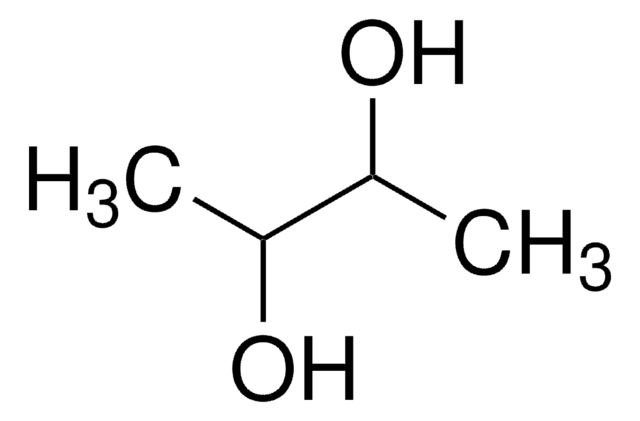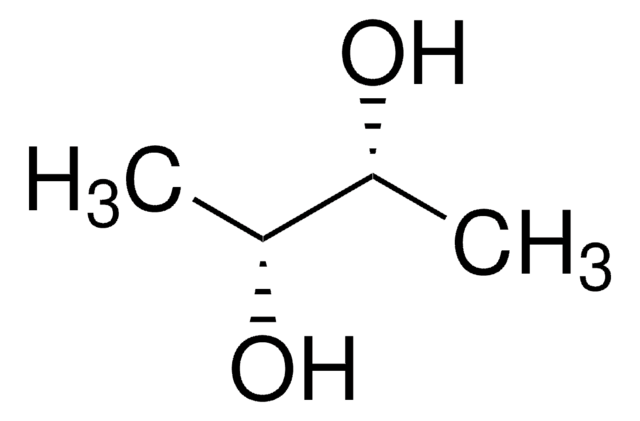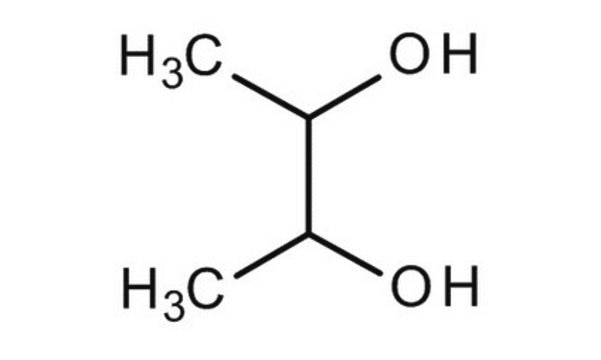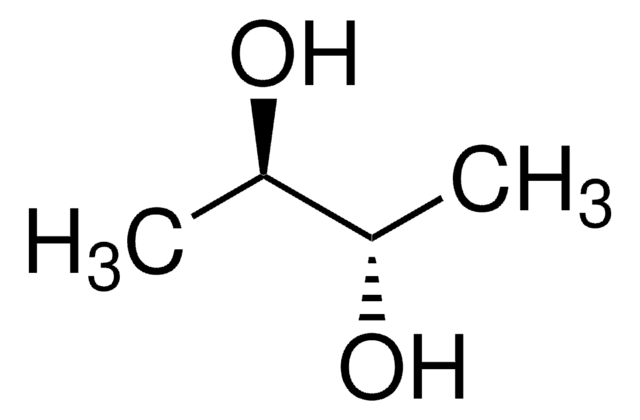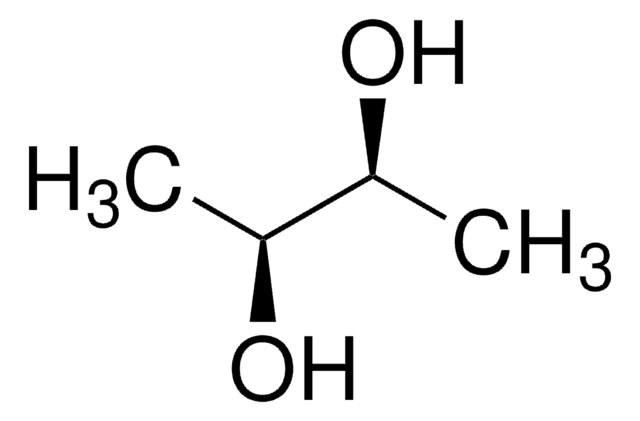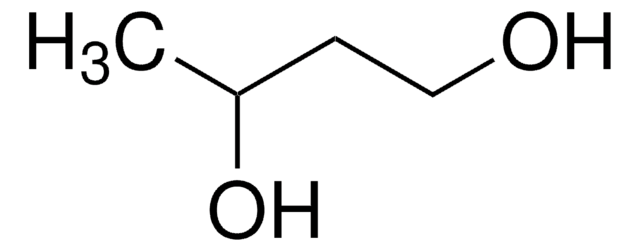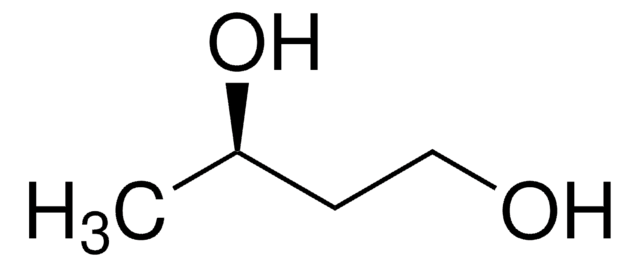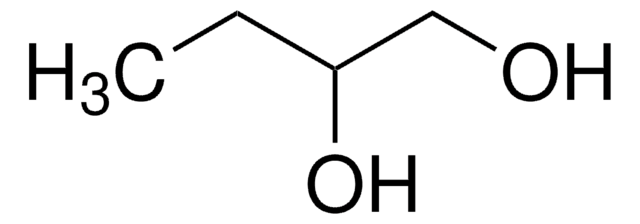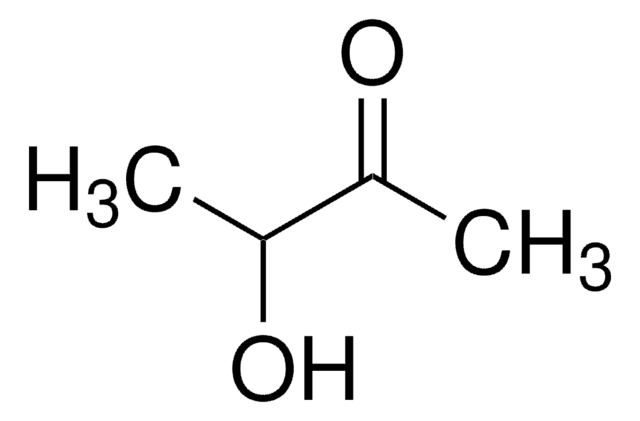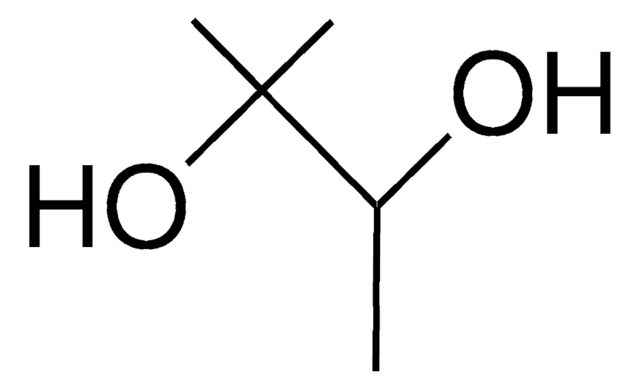B84904
2,3-Butanediol
98%
Synonym(s):
2,3-Butylene glycol
About This Item
Recommended Products
Quality Level
assay
98%
form
liquid
refractive index
n20/D 1.433 (lit.)
bp
183-184 °C (lit.)
mp
25 °C (lit.)
density
1.002 g/mL at 20 °C (lit.)
SMILES string
CC(O)C(C)O
InChI
1S/C4H10O2/c1-3(5)4(2)6/h3-6H,1-2H3
InChI key
OWBTYPJTUOEWEK-UHFFFAOYSA-N
Looking for similar products? Visit Product Comparison Guide
Related Categories
General description
Application
- CRISPR/Cas9 in Pichia pastoris: 2,3-Butanediol (BDO) is used in the construction of P. pastoris cell factories as a representative example to demonstrate the procedures for integrating multiple heterologous genes using the CRISPR-based multiplex genome integration toolkit (Gao et al., 2024).
- Antifungal activity in sorghum: 2,3-butanediol, a metabolite of A. oryzae YRA3, can induce the production of root exudates which modulate the growth of the rhizospheric fungi and bacteria (Rashad et al., 2023).
Storage Class
10 - Combustible liquids
wgk_germany
WGK 1
flash_point_f
185.0 °F - closed cup
flash_point_c
85 °C - closed cup
ppe
Eyeshields, Gloves, type N95 (US)
Certificates of Analysis (COA)
Search for Certificates of Analysis (COA) by entering the products Lot/Batch Number. Lot and Batch Numbers can be found on a product’s label following the words ‘Lot’ or ‘Batch’.
Already Own This Product?
Find documentation for the products that you have recently purchased in the Document Library.
Customers Also Viewed
Protocols
99%; Glycerol, ≥99.5%; Tetraethylene glycol, 99%
Our team of scientists has experience in all areas of research including Life Science, Material Science, Chemical Synthesis, Chromatography, Analytical and many others.
Contact Technical Service